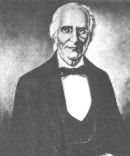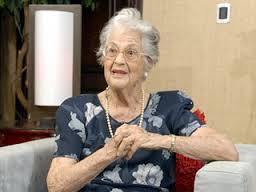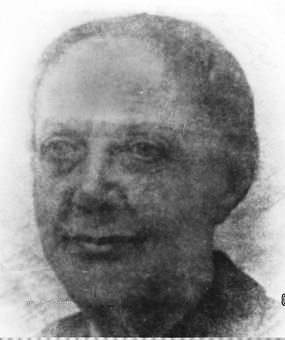Related Research Articles

The Mirabal sisters were four sisters from the Dominican Republic, three of whom opposed the dictatorship of Rafael Trujillo and were involved in clandestine activities against his regime. The three sisters were assassinated on 25 November 1960. The last sister, Adela, who was not involved in political activities at the time, died of natural causes on 1 February 2014.

Ramón Buenaventura Báez Méndez, was a Dominican politician and military figure. He was president of the Dominican Republic for five nonconsecutive terms. His rule was characterized by being corrupt and governing for the benefit of his personal fortune.
Salcedo is the capital city of the Hermanas Mirabal Province in the Dominican Republic. It is the birthplace of the Dominican heroines, the Mirabal sisters, who died in the struggle against the dictator Rafael Trujillo. A museum in the town commemorates three of sisters; it was tended to by the remaining sister, Bélgica (Dedé) Mirabal, until her death on February 1, 2014.

Ulises Francisco Espaillat Quiñones was a Dominican author and politician. He served as president of the Dominican Republic from April 29, 1876, to October 5, 1876. Espaillat Province is named after him.
Dulce María Piña de Óleo is a retired female judoka from the Dominican Republic, who won the bronze medal in the women's middleweight division at the 1995 Pan American Games and 2003 Pan American Games. She represented her native country at the 1996 Summer Olympics in Atlanta, Georgia and four times she won medal in the Central American and Caribbean Games.

Dr. Jaime David Fernandez Mirabal is a Dominican psychiatrist, agronomist, and politician.
Rossy Dahiana Burgos Herrera is a volleyball and beach volleyball player from the Dominican Republic. She won the bronze medal with the women's national team at the 2005 Pan American Cup in Santo Domingo, Dominican Republic. She plays as a wing-spiker.
Yamilet Peña Abreu is an elite artistic gymnast from the Dominican Republic who won a gold medal at the 2014 World Challenge Cup and the 2012 Pan American Championship in vault and a bronze medal at the 2012 World Cup. She is known for her execution of the Produnova—a handspring double front on vault. She qualified for the vault finals at the 2012 Summer Olympics and the 2011 and the 2013 World Championships.

Minerva Josefina Tavárez Mirabal, known by the Minou, is a philologist, professor and politician from the Dominican Republic. Mrs. Tavárez served as deputy for the National District in the lower House for three terms from 2002 until 2016; served as deputy minister of foreign affairs from 1996 to 2000.
Alba María Antonia Cabral Cornero, known as Peggy, is a Dominican journalist, television host, politician and diplomat. Cabral was co-president of the Dominican Revolutionary Party from 2013 to 2020; she also was vice-mayor of the National District (1998–2002). She served as Vice-Minister of Foreign Affairs of the Dominican Republic from 2019 to 2020. She is José Francisco Peña Gómez's widow.

María de la Purificación Ugarte España was a Spanish-Dominican journalist, writer, academician, historian and palaeographer. Ugarte was the first woman who worked as a journalist in the Dominican Republic, and also the first woman to become a member of the Dominican Academy of History.
Juan Andújar is a Dominican contemporary artist. He is known for his modern paintings, often inspired in the ocean and rural life.
Rosa Carolina Mejía Gómez de Garrigó is a Dominican politician, economist, and businesswoman. She is the current mayor of Distrito Nacional, the first woman to assume the position.
Juan Bautista 'Gianni' Vicini Cabral was an Italian Dominican businessman, chairman of Grupo Vicini.
Ivelisse Prats Ramírez was president of the Partido Revolucionario Dominicano (PRD) from 1979 to 1982 and was later vice president in 2004.

Mercedes Laura Aguiar was an educator and feminist from the Dominican Republic. As a journalist and poet, she wrote works to promote equality of men and women and Dominican sovereignty, writing in opposition to the US occupation. As a feminist, she fought for the right to vote, the right of women to education, and employment protections for women and children.

Martha Rivera-Garrido, also credited as Martha Rivera, is a writer from the Dominican Republic. She is part of the Dominican literary cohort named the 80s Generation. Rivera-Garrido was known primarily as a poet prior to the release of her debut novel, He Olvidado tu Nombre(I Have Forgotten Your Name). The novel won the International Novel Prize of the Casa de Teatro in 1996. In 2013, a street in Santo Domingo was named in her honour.

Socorro Sánchez del Rosario was a Dominican educator and journalist. She was the first feminist journalist of the country. She also founded the first secular coeducational school in the Dominican Republic, as well as the first women's library, first women's normal school and first women's pharmacy training courses. There are several schools in the country which have been named after her.
María Argentina Minerva Mirabal Reyes, or Minerva, was the third Mirabal sister, born March 12, 1926, in the Dominican Republic to Mercedes Reyes Camilo and Enrique Mirabal. Like her older sisters, Minerva also received an education at El Colegio Inmaculada Concepción, at the urging of her mother, Mercedes Mirabal. Through their education, Minerva and her sisters began to recognize and speak out against the oppressive dictatorship of Generalissimo Rafael Leonidas Trujillo.

Zenobia Galar is a Dominican painter.
References
- ↑ "Indotel exhibe documental Mujeres extraordinarias". El Día (in Spanish). 20 August 2009. Retrieved 2020-09-17.
- ↑ Medina R., Grisbel (2015-11-27). "Mujeres extraordinarias". Listín Diario (in Spanish). Retrieved 2020-09-18.
- ↑ "Indotel presentará en Moca documental ?Mujeres Extraordinarias?". Diario Dominicano. Retrieved 2020-09-18.
- ↑ Hoy (2009-08-21). "Documental Mujeres extraordinarias es presentado en TN". Hoy Digital (in Spanish). Retrieved 2020-09-18.
- ↑ "El valor del ejemplo". El Nacional. Retrieved 2020-09-18.
- ↑ Francisco, Mayelin (2015-11-23). "Segundo documental Mujeres Extraordinarias vuelve a recoger hoy testimonios de guerreras dominicanas". Listín Diario (in Spanish). Retrieved 2020-09-18.